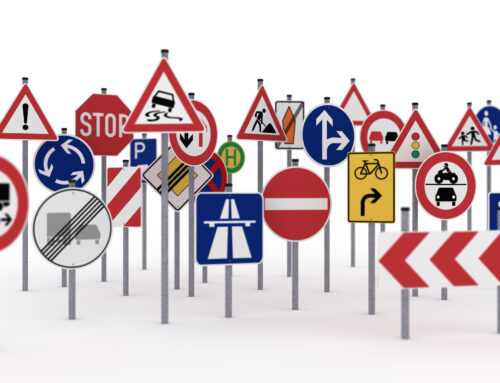Excel in your Job Interview
Part 2
You have succeeded in securing the interview, you are prepared and ready. It is time to practice some of those interesting questions they are likely to fire at you to determine how you respond, how your mind thinks and processes and how you respond under pressure.
Responding to the challenging questions
You may get that odd interesting or challenging question you never practiced. Many interviewers throw in a random question just to measure your response and attitude rather than your actual answer to the question. When this occurs, wait, smile, repeat the question back to ensure you have heard it correctly and ask if that was precisely what was just asked. Take a breath, think, and allow your mind 5 seconds or so to process, then slowly start your response as briefly as possible. We never want to randomly talk and talk, get to the response, smile and finish. Comment ‘that is a great question, thank you, let me think on that for a moment’ as this allows you time to process and them time to wait, knowing you are processing a response.
The questions we get asked that often challenge us include:
“Tell me a little about yourself.” With this question, the interviewer is likely to be trying to assess your communication style and also, possibly, your internal processing. A good strategy is to proceed logically from either high school, university, or your first professional role (depending on your age). Try to see if you can work in one of the criteria areas and how great you were at that. This may be a team player, working on challenging projects, working with challenging customers, etc.
“What do you feel is your greatest achievement?” Prepare for this one so that you can deliver your answer smoothly, with sufficient detail and factual data backing up your claim. Take about two minutes to summarise your personal involvement in the achievement.
“In what way are you qualified for this role?” Here pick two or three reasons and integrate them into a two minutes story. You may nominate, for example, a technical skill, an interpersonal skill and a success you have accomplished.
“What do you consider your greatest strength?” Consider this another chance to convince them of your key strengths. All of your response here are geared toward showing how your strengths are ones the organisation needs. Your answers are more credible if they are backed up by quantifiable data and by detail. You can use either strengths in the manner of which you work under pressure, how you work within a team environment, your professional ability, anything that the job criteria states as required pick one of these.
“How do you cope under pressure?” Hopefully you can honestly assert that you handle pressure well. This is important to most organisations as pressure can come from a wide variety of areas and they do not want someone going off sick on stress-leave. Sometimes if they ask this question, it may be because the job is pressure-packed. Provide an example of when you performed or excelled under pressure.
“Have you ever achieved something that you didn’t think you would be able to do?” This is a goal-oriented question? Discuss what is your work ethic like, about your personal commitment and integrity for the job or task you accomplished. Relate a story or example where you overcame difficulties and succeeded. Your response needs to demonstrate, you don’t quit or give up but work tirelessly to achieve the outcome required.
“What was the most difficult moment in your career and would you do things differently knowing what you know now?”. The interviewer is seeking to discover if you can self-reflect being your career and your life. This is about making mistakes or a wrong decision and being able to learn from them and move on more informed.
“One of our biggest challenges is … How would you deal with this? What experience do you have in doing so?” This is your chance to show off your analytical skills. You need to think on your feet here. You can ask a few questions and then break the problem into smaller challenges, saying how you would tackle each one. Asking for clarity on some questions allows the brain time to think and process, this is important.
“How would you handle a situation with tight deadlines, or low employee morale?” If this is a management role or one overseeing others, this is essential. The interviewers will be looking for great management skills, so your strategy should be to describe your toughest management task. Interpersonal skills, the capacity to handle pressure and people (and your ability to handle this question), are all good indicators of effective management skills.
“What is/was the worst aspect of your current/last job?” Be careful saying you dislike overtime, micro-managers, team members, etc., instead, concentrate on general dislikes, such as bureaucracy, inflexibility of management to hear new ideas, or even the limitation of work not allowing you to excel in your field. Never demean the organisation, management or staff.
“Why are you leaving your current job (or why did you leave your last job)?” This is an important this question as it cost any organisation a lot to train a new team member, they want to know you will stick around. One critical word about your former boss, the company, or any of your co-workers, and you might as well pack up and leave. Company-wide problems are fine to mention, such as takeovers, shutdowns or restructure. You can follow that up with a statement noting that, after serious consideration, you realised that your opportunities for making a significant contribution would be reduced due to extensive changes. It’s never acceptable to speak badly about a former/current/other company. The interviewer understandably believes that, if you have critically demeaned a previous or current organisation or team, you will likely continue to do so.
“Where do you see yourself in five years?” Your response to this one allows the interviewer the opportunity to discover your future goals. Always have a 5 year plan, this is expected. When an interviewee sits there not knowing, this is a huge negative. Paint a picture in your mind and imagine, realistically, where you will be and what you will be doing. Do not mention personal or children, keep it work related.
“If we were to offer you this position, what kinds of contributions would you make?” This is often at the end, so you know you are close to finishing the interview. This is also where you can add any other comments you feel are relevant for their decision making process. This is your opportunity to offer a thoughtful, organised response which addresses their problems and summarises your strengths and potential contributions to the organisation. Talk like you are part of the team, what you can bring to the position to aid the team, build the organisation and help increase their bottom line – money.
After the interview
After the interview, it is time for you to show your gratitude. Not only is gratitude a nice quality to display, it also may make a difference in the outcome. According to a survey by an online job-matching service, 75 percent of employers stated that receiving a thank-you note from a candidate affected their decision-making process (Messmer, in Taylor, 2016). A thank you note shows etiquette, and gratefulness, plus you can reiterate why you are the best person for the job. Send a thank you card as soon as possible after the interview, within 24 hours and make sure you state the names of each interviewer. If you need to obtain correct spelling, which is essential, call the office and ask for the names and spelling to ensure your accuracy. Misspelt names can end you chances, correct names and a thank you card for the interview opportunity can secure a you as a winner in a close race.
What should you put in a thank you card, and how should you send it to:
The handwritten note is a nice touch, even if the organisation has a modern, high-tech culture. Snail mail may arrive too late to have an impact. Always use formal business writing and be sure to triple-check it for accuracy, grammar, punctuation, and spelling: just like you did with your resume and cover letter. The card should be brief:
- Thank those for the opportunity of meeting with you by name
- Mention something you liked about the interview
- Repeat your interest in the job and look forward to hearing the outcome once a decision has been made
I suggest after the interview you write the card and post it then so they receive it the following day. Never drop it in that day or the next, it must arrive by mail.
Remember: every interview is great practice therefore, if unsuccessful this time, take the learnings to the next interview. You will succeed. Listen again to the Self-confidence session to make sure you are prepared and focused, feeling strong and confident for the next opportunity.
Read more from Dr Karen






